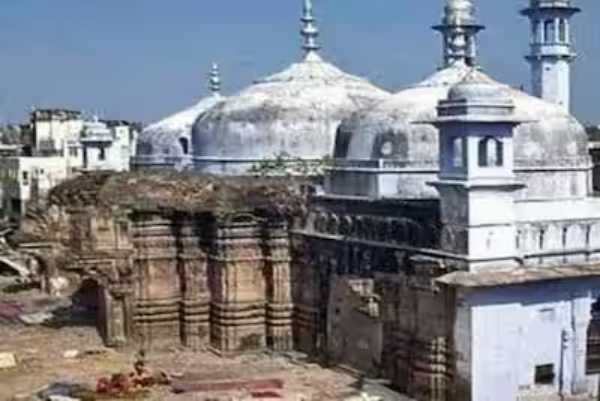Gyanvapi Mosque News: In the ancient city of Varanasi, India, where the Ganges River flows serenely and spirituality permeates the air, a place of worship stands at the heart of a contentious debate. The Gyanvapi Mosque, nestled next to the revered Kashi Vishwanath Temple, has been a focal point of religious and historical discord for centuries. Recently, this historic site has once again captured headlines, stirring up a storm of controversy and reigniting age-old tensions.
A Brief History of Gyanvapi Mosque
The Gyanvapi Mosque, also known as the Gyanvapi Masjid, is located near the Kashi Vishwanath Temple, one of Hinduism’s holiest shrines dedicated to Lord Shiva. The mosque was constructed by Mughal Emperor Aurangzeb in the 17th century, purportedly on the site of a demolished Hindu temple. This act of religious appropriation during the Mughal era is a subject of deep contention.
The mosque’s name, “Gyanvapi,” translates to “well of knowledge,” a reference to an ancient well situated within its premises. Legend has it that the well was used by Hindu priests for ablutions before performing rituals at the adjacent temple.
Recent Developments
In recent times, the Gyanvapi Mosque has once again found itself at the center of a storm. A legal battle has ensued over a petition filed in the Varanasi district court seeking the removal of the mosque. The petition claims that the mosque was built after demolishing a Hindu temple, and thus, it should be returned to the Hindu community.
The case has sparked heated debates across the nation, with religious and political sentiments running high. Supporters of the mosque argue for its preservation as a symbol of India’s pluralistic heritage and religious harmony. On the other hand, proponents of the temple’s reconstruction assert the righting of historical wrongs and the restoration of sacred Hindu sites.
Legal and Political Ramifications
The legal battle over the Gyanvapi Mosque is not merely confined to a dispute over religious ownership but also touches upon broader issues of heritage preservation, secularism, and constitutional rights in India.
The case has implications beyond its immediate religious context. It underscores the delicate balance between religious freedoms and historical justice in a diverse and complex society like India. Moreover, it raises questions about the role of the judiciary in adjudicating matters of faith and history.
Social and Cultural Impact
The controversy surrounding the Gyanvapi Mosque reflects deeper societal fissures and identity politics prevalent in contemporary India. It has become a rallying point for various interest groups seeking to assert their narratives and influence public discourse.
At its core, the dispute over the mosque symbolizes the struggle for cultural supremacy and the contestation of historical memory. It highlights the challenges of reconciling conflicting interpretations of the past and forging a collective national identity that is inclusive and pluralistic.
Conclusion
The Gyanvapi Mosque controversy is emblematic of the complex tapestry of religion, history, and politics that defines India’s socio-cultural landscape. As the legal battle unfolds and public discourse rages on, it is imperative for stakeholders to engage in constructive dialogue and uphold the principles of secularism, religious tolerance, and mutual respect.
Ultimately, the resolution of the Gyanvapi Mosque dispute will not only shape the physical landscape of Varanasi but also serve as a litmus test for India’s commitment to its pluralistic ethos and constitutional values. It is a reminder that the past is not merely a matter of historical inquiry but a living legacy that continues to shape the present and future of a nation.
